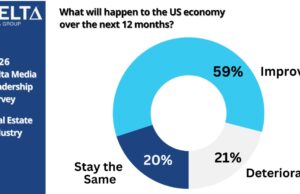FTC Staff Submits Comments to Federal Reserve on Making Fair Lending Law Stronger; FTC Announces Increase in Maximum Charge for Extra Copies of Credit Reports
FTC Staff Submits Comments to Federal Reserve on Making Fair Lending Law Stronger
WASHINGTON, D.C. – December 17, 2010 – (RealEstateRama) — The Federal Trade Commission staff has submitted comments to the Federal Reserve Board recommending ways the Board could strengthen the rules under the Home Mortgage Disclosure Act, which requires some mortgage lenders to collect and report loan data that the government uses to analyze whether they are complying with fair lending laws.
In response to a request for comments by the Federal Reserve Board, the FTC staff outlined the FTC’s enforcement of fair lending laws and recommended changes to the Home Mortgage Disclosure Act’s Regulation C. The FTC staff recommended that the Board expand the number of mortgage lenders required to report loan data by modifying the criteria for determining which ones are required to report. According to FTC staff, these changes would not be overly burdensome to lenders and would provide regulators with better data to enforce fair lending laws. FTC staff also suggested that the Board require lenders to report on additional types of loans, such as reverse mortgages and home equity lines of credit, and to report additional data fields for all reported loans. In addition, the FTC staff recommended that the Board make the mortgage data available to the public and useful to researchers while still protecting mortgage applicants’ privacy.
The FTC vote approving the comment was 5-0. (FTC File No. P064806; the staff contact is Allison Brown, Bureau of Consumer Protection, 202-326-3079).
FTC Announces Increase in Maximum Charge for Extra Copies of Credit Reports
The Federal Trade Commission announced that the limit on how much consumer reporting companies are allowed to charge consumers for an extra copy of their credit report will increase from $10.50 to $11.00, effective January 1, 2011. The FTC is required to review the maximum credit report charge each year under the Fair Credit Reporting Act, and revise it based on the Consumer Price Index.
The FTC reminds consumers that this charge does not apply to the first free copy of their credit report that consumers are entitled to request from each of the nationwide consumer reporting companies — Equifax, Experian, and TransUnion — once every 12 months through www.annualcreditreport.com. For details, see “Your Access to Free Credit Reports.” Consumers also are entitled to a free report if a company takes adverse action against them (such as denying an application for credit, insurance, or employment) and consumers request their report within 60 days of receiving notice of the action. In addition, consumers are entitled to one free report a year if they are unemployed and plan to look for a job within 60 days; if they are on welfare; or if their report is inaccurate because of fraud, including identity theft.
The $11.00 maximum charge applies when a consumer who has received a free annual credit report does not otherwise qualify for an additional free report.
The Commission vote to publish the notice in the Federal Register was 5-0. (File No. P075400; staff contact is Clarke W. Brinckerhoff, Bureau of Consumer Protection, 202-326-3208; or Keith B. Anderson, Bureau of Economics, 202-326-3428.)
The Federal Trade Commission works for consumers to prevent fraudulent, deceptive, and unfair business practices and to provide information to help spot, stop, and avoid them. To file a complaint in English or Spanish, visit the FTC’s online Complaint Assistant or call 1-877-FTC-HELP (1-877-382-4357). The FTC enters complaints into Consumer Sentinel, a secure, online database available to more than 1,800 civil and criminal law enforcement agencies in the U.S. and abroad. The FTC’s Web site provides free information on a variety of consumer topics.
- MEDIA CONTACT:
- Office of Public Affairs
202-326-2180










